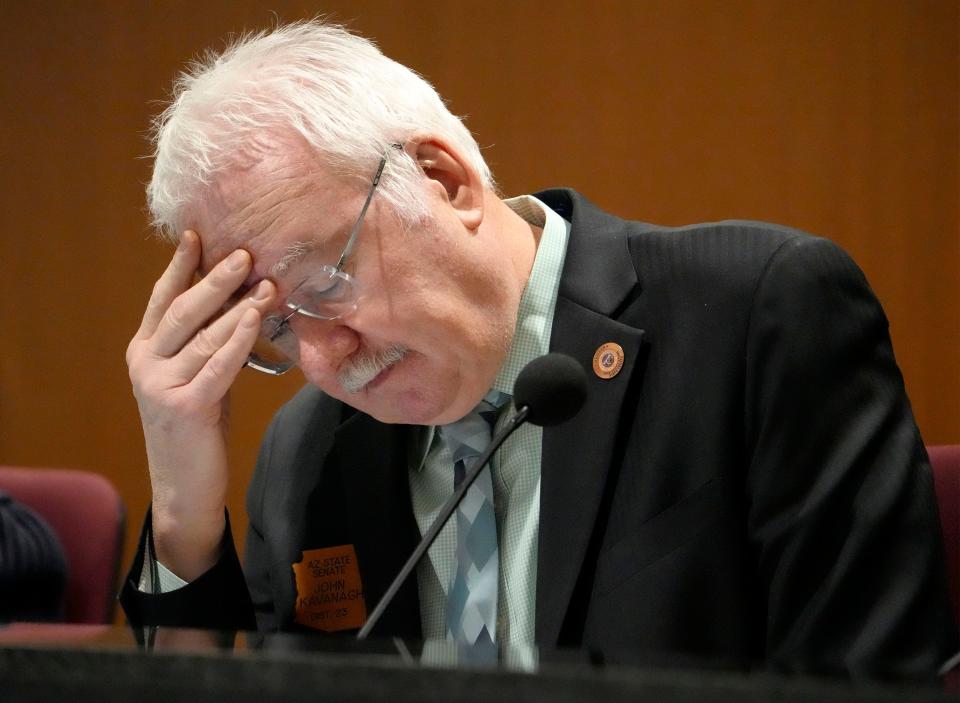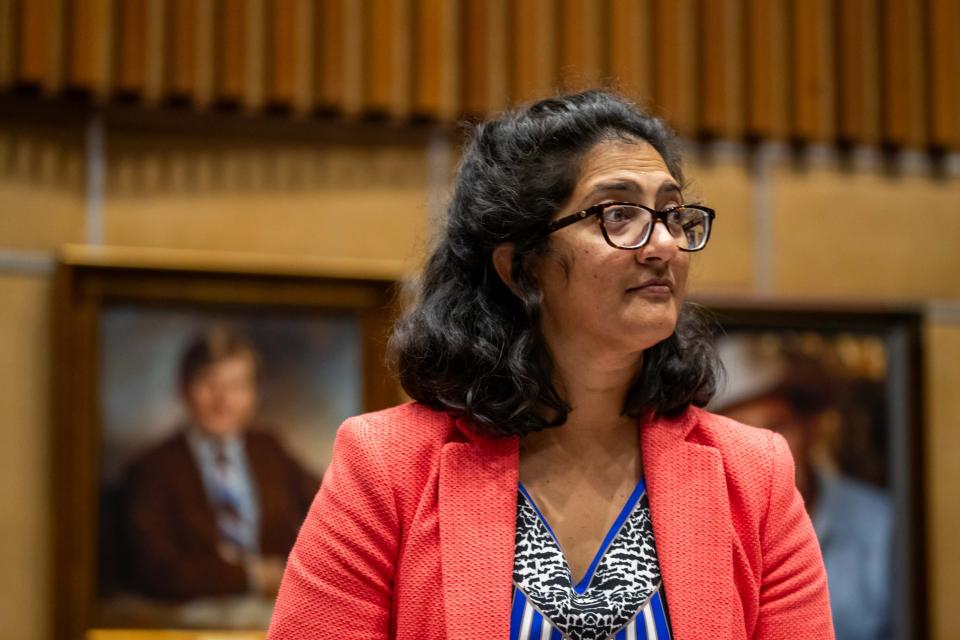Should Arizona cancel votes in low turnout elections? A GOP lawmaker wants to do just that
Is an election valid if only 10 percent of the voters turn out?
Sen. John Kavanagh doesn't think so.
The Fountain Hills Republican is promoting a bill that would require at least a 25 percent turnout for any local election to be official. If turnout is below that threshold, the vote would have to be re-run on the next statewide primary or general election ballot.
The idea is novel, according to Daniel Griffith of Secure Democracy. As senior policy director for the organization, he tracks election-related bills nationwide.
“I am not aware of a bill that looks like this in any other state," Griffith said. Nor could he think of any place in the country where such a law exists.
The proposal is problematic, he said.
“We see issues here," Griffith said. "What this bill is doing is throwing out the votes of people who took the time to fill out their ballots.”

Kavanagh said his bill is an attempt to get local governments, from cities to school districts to sanitary districts, to hold their elections at the same time as statewide and federal elections. That would mean August and November.
"The message here is: Have your election when people show up," Kavanagh said.
He calls local elections "quasi-secret" and a form of voter suppression because of their odd-year cycles, which typically draw low turnout. Like other critics, he argues such elections tend to attract proponents of the local issue to the detriment of the wider population.
Obscure elected boards, such as sanitary districts, get single or low double-digit turnouts, Kavanagh said. "That's not democracy," he said at the Feb. 5 meeting of the Senate Elections Committee.

Sen. Priya Sundareshan, D-Tucson, said his bill appears to be yet another attempt to force Tucson to move its council elections to a calendar more to lawmakers' liking.
That's been tried unsuccessfully before, she said, referring to court rulings that have held Tucson, as a charter city, is entitled to set its own election calendar.
But members of the public told the committee the bill, if it becomes law, would disenfranchise voters.
"It would overturn the will of the voters," Kerry Jackson told lawmakers. It would make it more difficult to win approval for school bond issues, he said, and could cripple school budgets.
Ruthee Goldkorn said the bill also negates the decision of people who choose to not vote.
"You don't know why people don't come (to the polls)," she chided lawmakers. Whether to cast a ballot is a decision that's left to individual voters, not to a Legislature to tell people they must vote, she said.
Goldkorn noted the GOP turnout in the Iowa caucuses for president was 15 percent, a level that would be unacceptable under the Arizona proposal.
Griffith said while there are countries that have compulsory voting, that's not the case in the U.S.
“Part of the American right to vote is the right to choose not to vote," he said.
The measure, Senate Bill 1131, passed the elections panel on a party-line vote, with Republicans in support and Democrats opposed.

Sen. Ken Bennett, a Prescott Republican and former Arizona secretary of state, said he had "tremendous concern" at the prospect of voiding an election if not enough people show up. But he voted for the bill to move it along in the legislative process.
The bill awaits constitutional clearance from the Rules Committee and then can advance to a vote of the full Senate.
Reach the reporter at maryjo.pitzl@arizonarepublic.com or at 602-228-7566 and follow her on Threads as well as on X, the platform formerly known as Twitter @maryjpitzl.
Support local journalism. Subscribe to azcentral.com today.
This article originally appeared on Arizona Republic: Arizona bill to void low-turnout elections passes Senate committee

